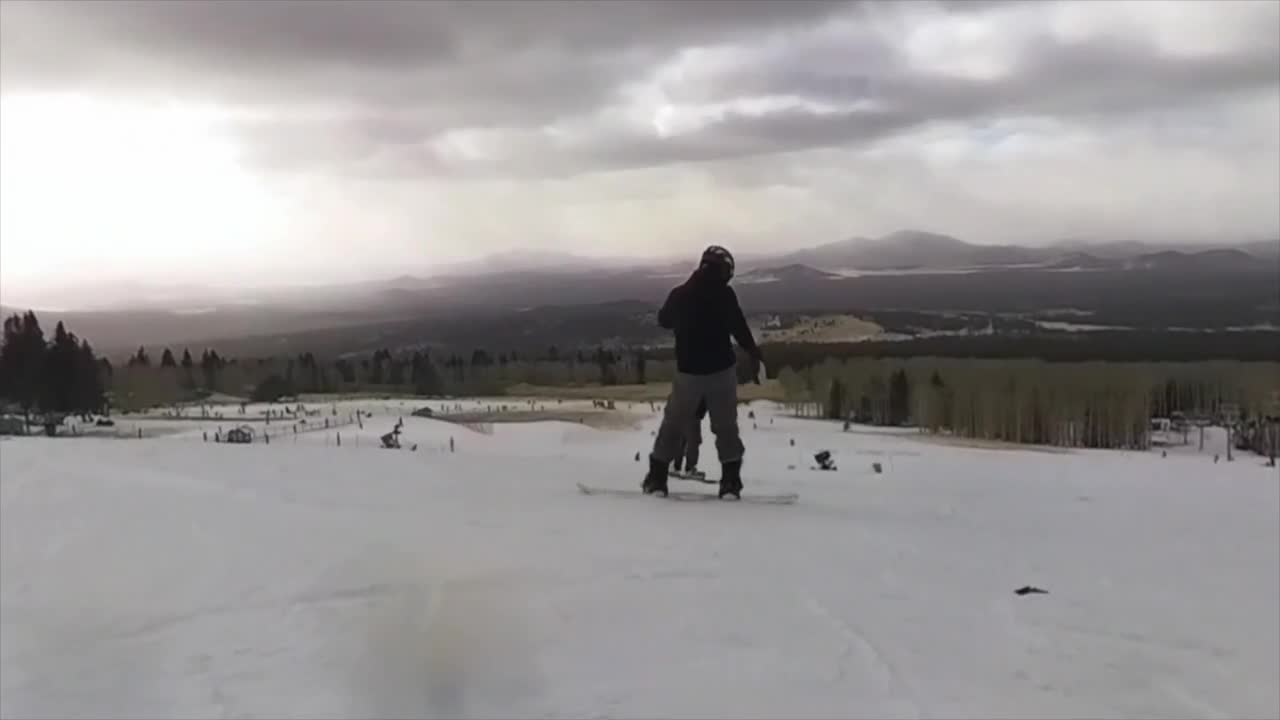When 20-year-old Izzy Siniscalchi laces up her sneakers and walks across the therapy gym at Barrow Neurological Institute, it feels almost ordinary to her.
But not long ago, the Chandler student athlete couldn't get out of bed, let alone stand on her own.
"It honestly just feels normal," Siniscalchi said as she walked at Barrow Neurological Institute. "I don't really remember a time where this wasn't normal. A lot of the hardest parts of recovery — I don't even remember them happening. It kind of just feels like a movie."
In January, Siniscalchi was snowboarding with friends at Arizona Snowbowl near Flagstaff when she vanished on her second run.
Hours later, another skier found her motionless at the bottom of a 70-foot cliff. She was rushed to a hospital in critical condition with a traumatic brain injury.
Doctors warned her parents, Patty and Ron, that the next 48 hours would determine whether their daughter survived. She did — but the journey ahead was daunting.
"She didn't have a single broken bone, but the swelling in her brain was severe," said Dr. Christina Kwasnica, chair of physical medicine and neuro-rehabilitation at Barrow. "When she first arrived at our rehabilitation unit, she needed help with everything — walking, eating, dressing, even communicating. And she didn't fully understand why she was there."
A turning point came after neurosurgeons inserted a shunt to relieve pressure in her brain.
"From that moment, her trajectory was up," Dr. Kwasnica said. "She began walking short distances, getting dressed independently, and regaining her ability to express what she was thinking."
Even then, progress was painstaking.

Do you have a concern in your community or a news tip? We want to hear from you!
Connect with us: share@abc15.com
Early on, therapists suspended Siniscalchi in a harness connected to the ceiling so she could take steps without falling.
She now strides across the gym without support and jokes with therapists she once relied on for nearly everything.
Videos of those early sessions still surprise her. "I was in really rough shape," she said. "Now it feels normal to walk, but four months ago that wasn't normal at all."
The next stage of her recovery begins soon at Barrow's Center for Transitional Neuro-Rehabilitation, an intensive program designed to help patients return to school, work, and everyday independence.
Siniscalchi, who turns 21 next month, says she's eager to start driving again and reclaim "the 20-year-old girl life."
Her story also comes with a message. She wasn't wearing a helmet when she fell.
"Take the extra two seconds it takes, spend the extra money," she said. "I don't know exactly what difference it would have made, but it definitely would have done a lot."
For now, she is focused on moving forward, step by step.
"I'm so proud of how far I've come," Siniscalchi said. "I'm thankful for my doctors, my family, my friends — everyone who's been there. And I'm excited for what the future holds."





